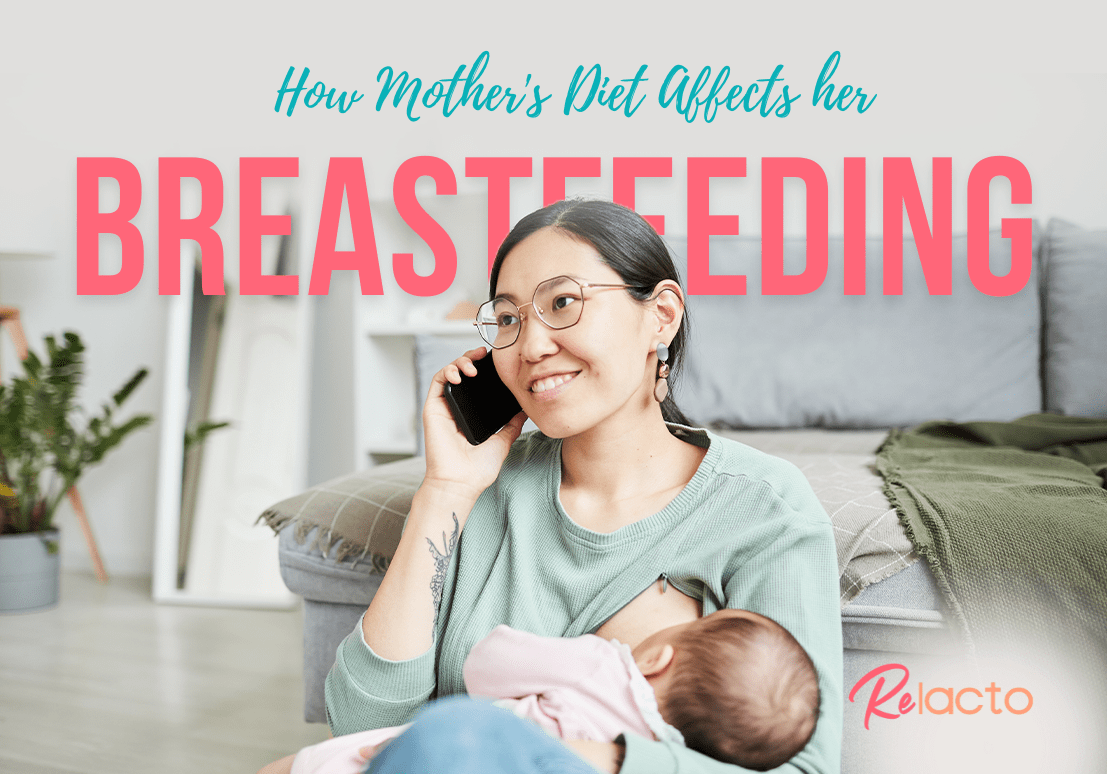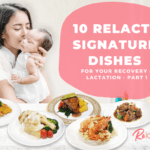How A Mother’s Diet Affects Her Breast Milk

Women are bombarded with contradictory advice about what they may and cannot eat while breastfeeding, and these recommendations may differ depending on culture and custom, as well as individual personal taste and budget.
In one culture, a food may be considered advantageous to a breastfeeding woman, whereas in another, the same item may be advised against. Spicy food, for example, is considered bad for kids in certain cultures, yet spices are an important component of regular diet in others.
So, let’s get around to answering the most important questions that have puzzled mothers since records began.
How exactly does a mother’s diet affect breast milk?
Let’s start off this quote-unquote question and answer blog post with the namesake of this article.
Now, we know that what you, as the mother, consume can go into your bloodstream and later on into your milk. This has been seen with compounds like caffeine, alcohol, garlic, etc.
However, you might be thinking to yourself – I’ll cut down on the alcohol, take less garlic, and just dial back on the chocolates, that’ll be fine and dandy, right?
Technically, yes, but that’s not all. Also, in some cases, you might actually want to take more garlic instead (more on this later).
For this, let’s take a big picture approach first and say that unless your diet consists primarily (and exclusively) of crisps, chocolates, ice cream, cigarettes, wine, and a metric tonne of mercury (from fishies that are high in mercury…more on this later), your body will provide enough nourishment for your little one and he or she will even have more than enough left over…it’s an evolution thing (no point in being able to adequately nourish your baby through the pregnancy, but all of a sudden be unable to sustain the nourishment after delivery on the same diet, right?).
It should be noted that in extreme cases of malnutrition, diets can severely impact breast milk. Things like iron, calcium, zinc, copper, folic acid, etc, deficiencies of those DURING pregnancy can lead to lower stores for your baby (while in your tummy), but during breastfeeding, does not really affect levels in breast milk.
Calories, diet & breastfeeding?
This topic, on the other hand, is probably where diet comes into play more importantly. What we do want to note here is that your body needs energy in order to not only nourish yourself, but also nourish your little one.
After all, we remember Newton’s law on the conservation of energy – energy can neither be created nor destroyed, only converted from one form of energy to another. So, since we can’t really create our own energy, we need to store it somehow, somewhere, in some form that’s then later converted by the body to power that milkshake factory for our bundles of joy to lap on happily.
It is estimated that for breastfeeding mothers, an ADDITIONAL 300 kcal is needed, at the very least, to meet the caloric nutritional needs while breastfeeding. Again, we’d like to stress that we mentioned that’s an additional amount of calories that’s needed by your body. To put things into perspective, the average lady would require 1,600 to around 2,500 kcal per day and that’s for moderately active and non-pregnant women who are not breastfeeding according to the CDC in America. So, top up on that and we’re good to go.
What to avoid?
Mercury
Hey, remember earlier when we talked about eating mercury? Well, obviously, we understand perfectly well that humans…at least sane humans…won’t consciously want to consume mercury but you may unknowingly eat fishes that contain high mercury.
Relating it back to diets affecting breast milk, well, let’s just say that it’s one of those things like alcohol which can pass through your system and go into your breast milk which is then consumed by your baby. Just as a little news flash, you really don’t want mercury in a baby…in case that wasn’t clear before. Mercury can affect the brain and nervous systems of infants, and not in a good way.
Hold on, we’re not done yet, there are fishies that have low mercury which you are recommended to have at least twice a week as they contain Omega 3- DHA which is good for your baby’s brain development. Some of the examples recommended by US Food & Drug, FDA and Singapore Food Agency, SFA are salmon, skipjack tuna, atlantic mackerel and prawns.
Caffeine
Well, this one is a bit of a contentious topic. Yes, you may not be a coffee drinker, but there’s a good chance that you love yourself a nibble of chocolates every now and then. Even if say that you don’t like chocolates (gasp, yes, we know, there are actually people who don’t like eating chocolates, what are the odds?), it’s still found in tea (oh, hi there, boba tea), energy drinks (Red Bull fans, we see you), and certain soft drinks (does a certain red can with white lettering sound familiar?)
Now, it has to be said that in small and infrequent doses, it doesn’t do much to adversely affect infants, but caffeine is still something that can be passed through breast milk. You’d really have to be chugging that coffee to be giving your baby irritability, poor sleep, fussiness, and the jitter-bug. …while on the other end, if you really do need your morning coffee (like some of our writers here) then go ahead and have 1 or 2 cups, but no more than that!
Alcohol
Well, it might be cute for you to be sporting an Asian flush from all that drinking, but would you really want to see a baby that’s still breastfeeding with that same blush? Yeah, we didn’t think so.
Generally, as a rough rule of thumb, staying away from alcohol is the safest bet to go with as there won’t be any alcohol in your system to pass into your baby, right?
However, if you can’t curb the itch and have to have that Rosé all day, every day, then just bear in mind that exposure to alcohol through breast milk could very well damage your infant’s development, growth, and sleep patterns (yeah, right, they’re waking up the whole neighbourhood at odd hours anyway, what patterns, right?)
There is one saving grace for those who aren’t able to resist the tipple – limit yourself to one standard drink per day and wait at least two hours before nursing to ensure that most of that alcohol, if not all, gets…dissipated.
Closing words
At this point, if you’re thinking that there’s an overwhelming amount of information there, you are not wrong. There’s as much science that goes into breastfeeding as there are myths surrounding it all.
What we can do to make things easier is to let you in on a secret to the best lactation meals. Ready? It’s actually one simple word – ReLacto.
That’s right, we at ReLacto deal in the very serious business of lactation foods and drinks. With a varied menu, award-winning chef, professionally certified in-house dietitian, and lactation boosting foods made with love and meticulous balancing of nutrition that ensures you get the most well-balanced meals you can imagine!
The only thing that we’re missing now are where you’d like these healthy meals delivered to. Oh, did we not mention that we also did door-step delivery services for our lactation meals? Well, no time like the present! Ring us up today to learn more or you could simply swing by our homepage to browse through our mouth-watering menu.







